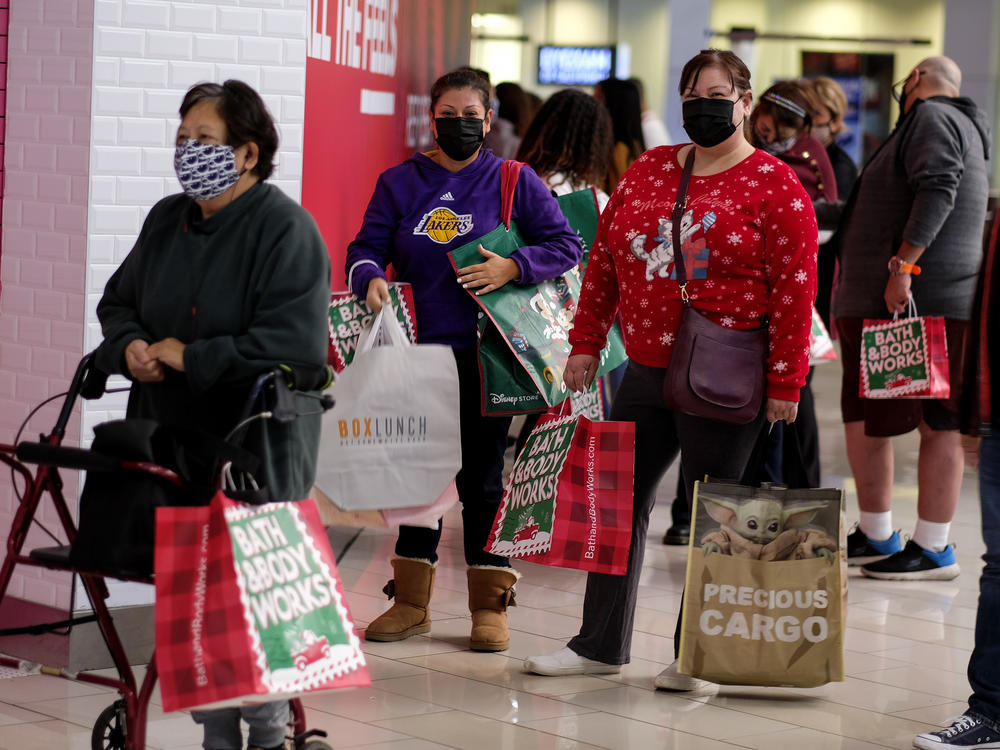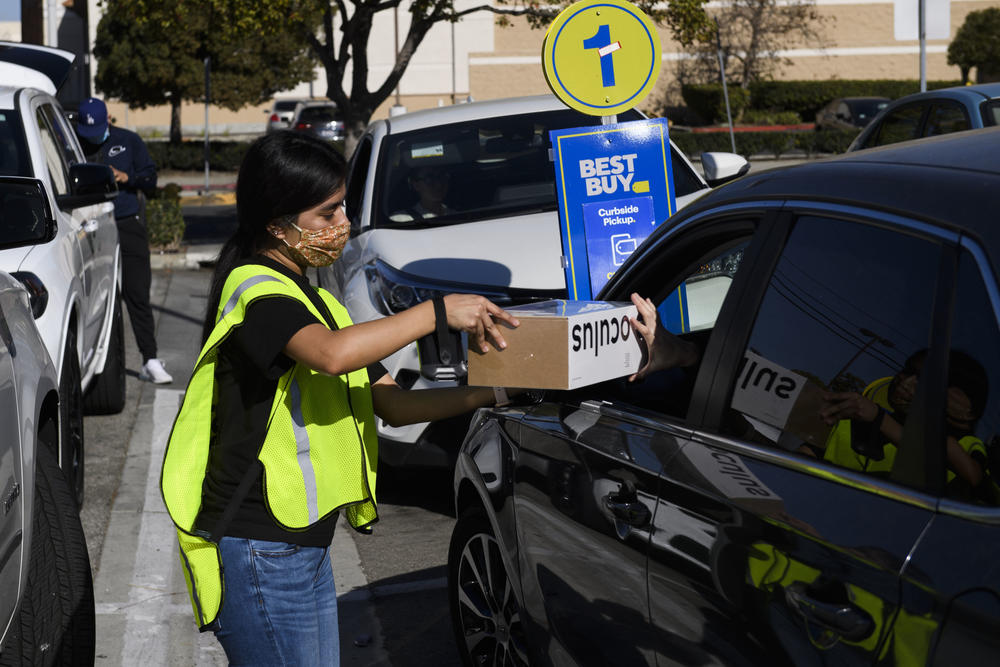Section Branding
Header Content
A Black Friday With Masked Shoppers And Booming Online Sales
Primary Content
Black Friday, traditionally the busiest shopping day of the year, fell during one of the gravest surges in the coronavirus pandemic in the United States: Thanksgiving Day saw more than 100,000 new confirmed cases and more than 1,000 coronavirus deaths.
Predictably, the pandemic has dampened enthusiasm for trips to the mall and stores across the country. Yet shoppers sporting masks did turn up at big retailers, and many encountered an overhauled shopping experience, including temperature checks and plastic barriers in the checkout aisle.
In Hyattsville, Md., NPR's Alina Selyukh reports that the Mall at Prince George's was bustling with shoppers.
"Lots of people strolling around, just kind of checking out whatever's on sale, getting clothes, bedding, even jewelry. I saw a line at GameStop for electronics. Even Santa is here to pose with pets from behind a plexiglas shield."
Selyukh spoke to shopper Antoinette Mingo, who was dashing into Macy's to buy a gift for her son. She said, "I'm a touchy-feely person. I need to touch and feel and look at it. So I'm just crossing my fingers, hope they have it in here and then I'm done."
She said while she was anxious about being there, she felt a mask would keep her safe.
It was a small ray of hope for retail, an industry that has suffered one of the biggest job losses as a result of the pandemic. Debt-laden, brick-and-mortar mainstays J.C. Penney, J.Crew and Neiman Marcus all filed for Chapter 11 bankruptcy since the spring.
Black Friday has been thought of as the big pre-holiday sales day. But as Selyukh has reported, that's been reshaped as retailers spread discounts across November and earlier in an effort to entice consumers to get holiday shopping done sooner.
The backdrop for the customary kick-off of holiday shopping was sobering: As of Friday, about 90,000 people were in U.S. hospitals with COVID-19, which is more than twice as many as just one month ago, according to The COVID Tracking Project.
Despite the dire case numbers, shopping patterns do not reflect a gloomy scenario for sales. The pandemic has vastly accelerated the pace of online shopping. This year, Adobe Analytics, which tracks online shopping, predicts that Black Friday and Cyber Monday will become the two largest online sales days in U.S. history, with Thanksgiving sales up 21.5% from 2019.
By staying away from large indoor spaces with masses of people, online shoppers could also be helping to flatten the curve. But despite the pandemic, many Americans were on the move this Thanksgiving. The Transportation Security Administration reported screening more than 1 million travelers in airports on Wednesday, and AAA estimated 48 million more were travelling by car. All that travel could produce a flare in cases, but health experts say the spread won't be detectable for several weeks.
Copyright 2020 NPR. To see more, visit https://www.npr.org.


